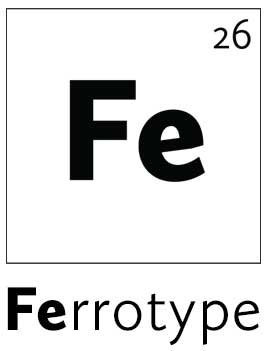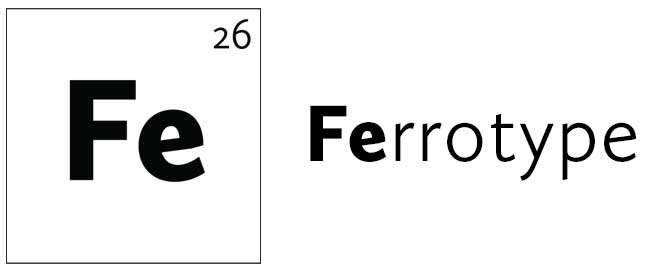The Streisand Effect: How to protect your brand. And how not to.
Knowing when to relax and trust in your brand
Some years ago, Jel Singh Nagra decided to name his convenience store in North Tyneside Singhsbury’s, in a tongue-in-cheek mash up of his name and that of the supermarket goliath. Whilst his signage did feature the colour orange, it was immediately obvious that the store was completely unrelated to Sainsbury’s but still, some years later they came knocking and issued him with a cease & desist. Mr Nagra complied but his customers liked the jokey name so, after casting around for a new name, Mr Nagra hit upon the idea of calling his shop Morrisinghs and decided to try his luck with a new M-shaped logo and livery.
Morrisons however decided to take a different approach to Sainsbury’s and embraced the brand recognition, telling Mr Nagra they wished him well. The result? TV crews and the media descended on the shop, posts on social media went viral and Morrisons came out of the story looking like the nice guys. In fact since Mr Nagra’s wordplay there have been many instances of shops up and down the country doing the same, the latest using outrageously copycat signage and calling the store Singhsbury’s Local. That too is all over the media with speculation over how Sainsbury’s will act this time.
So how best to react when others copy your business or idea? Sometimes it’s a fine line between protecting your brand and coming off as arrogant or unfeeling.
Netflix tried a more creative approach to cease and desist with their humorous letter to a bar in Chicago which was themed around their Stranger Things show. The six week pop up was so successful with local residents and fans of the show that the owners decided to extend their run, only to fall foul of the streaming giant. But Netflix’s communique to the fans, for that is ultimately what they were, employed knowing references to the show which managed to keep the bar owners and fans onside.
“Look I don’t want you to think I’m a total wastoid, and I love how much you guys love the show (just wait until you see Season 2!). But unless I’m living in the Upside Down, I don’t think we did a deal with you for this pop up. You’re obviously creative types, so I’m sure you can appreciate that it’s important for us to have a say in how our fans encounter the world we build.”
In another case of making a virtue out of what they considered a necessity, Anheuser Busch, owner of Budweiser, took on a Minneapolis craft brewery who had launched a beer with the name Dilly Dilly. This was a play on an advert for Bud Light that had featured medieval monarchs toasting whilst uttering the (copyrighted) phrase. Their solution to not seeming too heavy-handed? They hired a town crier in full traditional garb to deliver the cease and desist orally together with a scroll detailing their demands.
“We are duly flattered by your loyal tribute, however, Dilly Dilly is the motto of our realm and so we humbly ask that you keep this to a limited-edition, one-time-only run. Disobedience shall be met with additional scrolls, then a formal warning, and finally, a private tour of the Pit of Misery. Please send a raven, letter or electronic mail to let us know that you agree to this request.”
Oh and they threw in some Superbowl tickets as well. They also videoed the spectacle which duly went viral, ensuring Anheuser Busch came out looking good, the micro-brewery got some welcome publicity and the beer was renamed. Job done.
Poking a bit of fun at the slap down can also get you noticed. US chicken fast food outlet South Philly got in to hot water over their Chick Philly sandwiches which attracted the ire of a rival company with a product that had the same name. Sensing a media opportunity, they rebranded the product Chicken Cease and Desist and even turned the legal letter they had received into their packaging
Ultimately a public-facing company needs to consider how their action will affect their public image. Often the spectacle of a large corporation taking on a small business, armed with lawyers, does more harm than good. The McLibel case is a salutary example of how to make an entire mountain range out of a molehill. Back in 1990, five Greenpeace activists who were distributing an anti-McDonalds factsheet, were issued with libel proceedings by the burger chain. McDonalds had previously taken on others over claims that had made them unhappy, including Channel 4, all of whom had backed down in the face of the mighty US corporation.
Although three of the Greenpeace activists decided to comply, two of them, Helen Steele and Dave Morris, decided to fight. The ensuing legal case, fought by Steele and Morris themselves as they had no recourse to legal aid (although with a little pro bono help from a certain Kier Starmer) turned out to be the longest-running libel case in English history, taking ten years to conclude. The resulting publicity was huge, coining the name McLibel, its own Wikipedia page and even a film, all from a small leaflet distributed outside a single branch.
McDonalds went on to win on most of the points, though a few were ruled in Steele and Morris’s favour, but it was a Pyrrhic victory. Most of the Wood Green users of McDonalds likely took a leaflet out of politeness and paid it little attention. The case ensured that it received world-wide attention, flagging up the claims for all to see and making McDonalds look both powerless and petty.
The business of attempting to censor or remove information and inadvertently publicising it to a far larger audience has a name – the Streisand Effect. The Hollywood star launched a $50 million lawsuit in an attempt to prevent an aerial photograph of her beachfront Malibu property being posted online, as part of a project documenting coastal erosion. Prior to her case only six people had ever viewed the photograph online and two of those were Barbra Streisand’s lawyers. When the case was heard, 420,000 people viewed it in the first month alone and she ensured maximum distribution for the offending photo which is now viewable to the world on the Streisand Effect Wikipedia page.
So does it ever make sense to try and stop someone messing with your intellectual property? The answer has to be yes, sometimes it does. On a recent visit to a trade fair in London I was surprised and not a little outraged to see shopping bags emblazoned with the message I’m with Greta. I found it hard to believe that the Swedish schoolgirl campaigner would have lent her name to a range of commercial products, even if they were intended as environmentally friendly. Sure enough, a week or so later I read of her attempts to trademark her name and stop it being used for commercial purposes. Banksy had the same problem recently and was forced to open a pop-up shop (for complex legal reasons) to ensure he was able to stop others exploiting his work.
Both these cases have attracted sympathy for the plaintiffs which is probably because they seem the underdog, the individual up against faceless companies, though technically the situations are not so different from that of Sainsbury’s or Budweiser. Ultimately it comes down to how the public perceive the merits of the case, on whose side they are likely to fall and how well the claim is handled. Sometimes it might just be better to accept that imitation is a measure of your success and consider KFC’s approach. Guys, we’re flattered.









